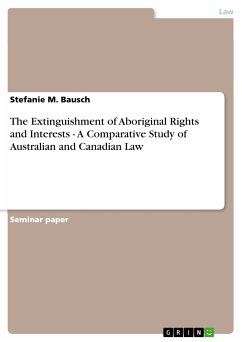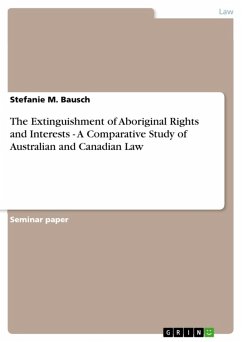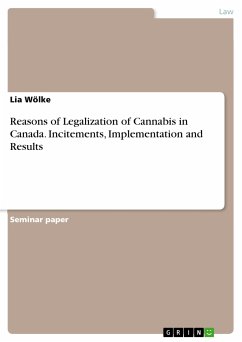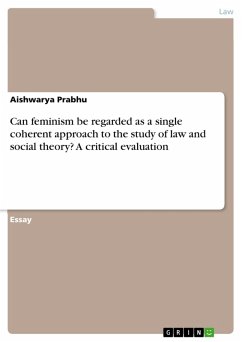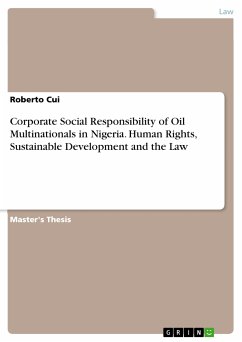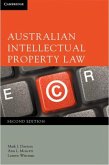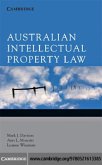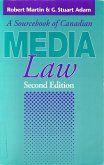Seminar paper from the year 2004 in the subject Law - Miscellaneous, grade: Good, University of South Australia, course: Comparative Native Title: Australia and Canada, language: English, abstract: “Extinguished is a Latin word. Something is inflamed or on fire, and it is put out. Silenced. It means to blot out of existence. To totally do away with; to annihilate, cut off, bring to an end. To kill. The word is related to extinct. That which has ceased to burn or shine. Vanished. Without progressive succession. Having no living representative. There is a vast emptiness.” The forementioned statement is a quote from Leslie Hall Pinder, a lawyer who represented the claimants in the famous Canadian aboriginal land rights case of Delgamuukw v British Columbia . It is part of a speech Pinder delivered to the British Columbia Library Association Annual General Meeting in April 1991 after the judgment of first instance was handed down by Chief Justice McEachern. The quote introduces the reader to extinguishment, especially the extinguishment of aboriginal rights and interests and thus to the topic of this research paper. This essay concentrates on two countries: Australia and Canada, and compares their law in relation to extinguishment of aboriginal rights and interests. First, it examines how these two countries approach the subject. Then, the paper draws a conclusion as to the question of similarities and differences between Australian and Canadian law.
Bitte wählen Sie Ihr Anliegen aus.
Rechnungen
Retourenschein anfordern
Bestellstatus
Storno

